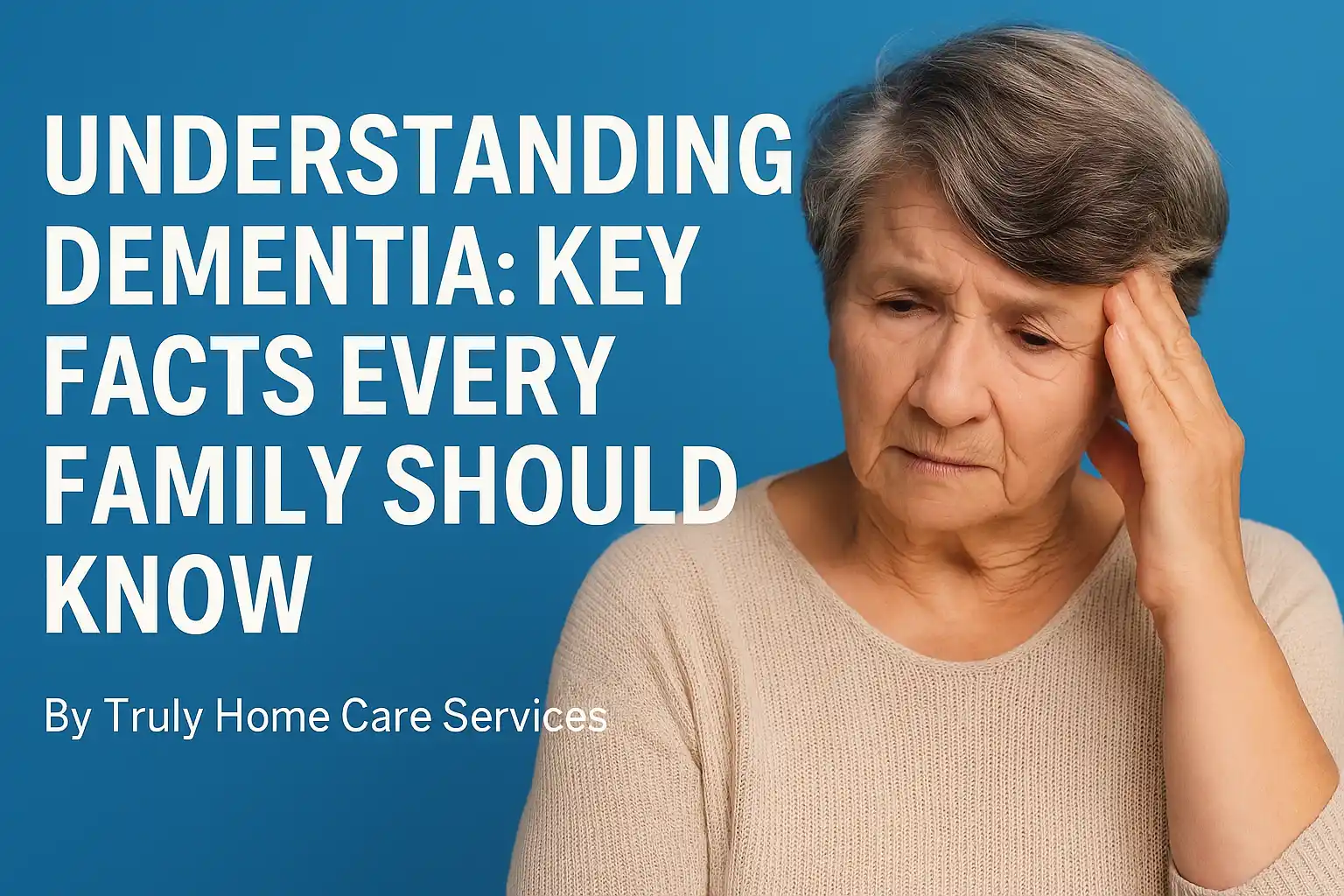Dementia is a condition that affects millions of people worldwide, and yet, many still have misconceptions or a limited understanding of what it truly entails. For families coping with dementia, knowledge is power. Understanding the disease, its progression, and the support needed can significantly improve the quality of life for both the individual with dementia and their caregivers. This guide highlights key facts every family should know about dementia, providing insight into how to best support your loved one.
What is Dementia?
Dementia is an umbrella term used to describe a range of cognitive impairments that interfere with a person’s ability to perform everyday activities. It is not a single disease, but rather a group of symptoms caused by various conditions that affect the brain. Alzheimer’s disease is the most common cause of dementia, but other types include vascular dementia, Lewy body dementia, and frontotemporal dementia.
Dementia can affect memory, thinking, communication, and judgment, making it increasingly difficult for individuals to manage their daily lives independently. It is essential to remember that dementia is not a normal part of aging, although it is more common among older adults.
The Different Types of Dementia
Understanding the type of dementia your loved one is experiencing is crucial because it helps guide the care approach and treatment plan. Here are the most common types:
1. Alzheimer’s Disease
Alzheimer’s is the most common type of dementia, accounting for 60-80% of cases. It is characterized by a gradual decline in memory, thinking, and problem-solving skills. In the early stages, symptoms may include forgetting names, appointments, and recent conversations. As the disease progresses, people with Alzheimer’s may struggle with tasks such as dressing, eating, and even recognizing loved ones.
2. Vascular Dementia
Vascular dementia is the second most common form of dementia. It is caused by reduced blood flow to the brain due to stroke or other blood vessel problems. Symptoms may develop suddenly after a stroke, and they often include difficulty with planning, organizing, and decision-making.
3. Lewy Body Dementia
This type of dementia is linked to abnormal protein deposits in the brain. It can cause symptoms similar to Alzheimer’s and Parkinson’s disease, including memory loss, hallucinations, and motor difficulties. Lewy body dementia is known for its fluctuating symptoms, meaning a person may experience good days and bad days.
4. Frontotemporal Dementia
Frontotemporal dementia affects the frontal and temporal lobes of the brain. It typically appears at a younger age, often between 40 and 60 years old. This form of dementia may cause changes in behavior, personality, and language, rather than memory loss.
Early Signs of Dementia
Recognizing dementia early can make a significant difference in treatment and care options. Here are some early warning signs to watch for:
Memory Loss: Forgetting important dates or events, and asking the same questions repeatedly.
Difficulty Planning or Solving Problems: Struggling with tasks that were once routine, like managing finances or following a recipe.
Confusion with Time or Place: Losing track of dates, seasons, or the passage of time. Forgetting where they are or how they got there.
Trouble Understanding Visual Images and Spatial Relationships: Difficulty reading, judging distances, or identifying colors, which may lead to problems with driving.
Changes in Mood and Personality: Becoming confused, suspicious, depressed, fearful, or anxious. These changes can occur in the early stages of dementia.
If you notice these symptoms in a loved one, it’s important to seek medical advice for proper diagnosis and treatment options.
How Dementia Progresses
Dementia is a progressive condition, meaning it worsens over time. The rate of progression varies depending on the type of dementia and the individual. While some people may experience a slow decline, others may deteriorate more rapidly.
In the early stages, individuals may still be able to live independently but may need assistance with certain tasks. As dementia progresses, individuals will require more support, including help with daily activities such as eating, bathing, and dressing. In the final stages, individuals may lose the ability to communicate, walk, or recognize loved ones.
Understanding the stages of dementia can help families prepare for the changes ahead, ensuring that their loved ones receive the appropriate care at each stage.
The Importance of Early Diagnosis
An early diagnosis of dementia provides several key benefits for both the individual and their family:
Access to Treatment: Although there is no cure for most types of dementia, early diagnosis allows for medications and therapies that can help manage symptoms and slow progression.
Planning for the Future: Knowing the diagnosis early allows families to make long-term care plans, including legal, financial, and healthcare decisions.
Support and Resources: An early diagnosis opens up access to a network of support services, including home care options, support groups, and counseling for caregivers.
If you suspect your loved one may have dementia, seek medical advice as soon as possible. Early intervention can lead to a better quality of life for both the individual and their family.
Dementia Support Services
Caring for someone with dementia can be emotionally and physically demanding. Dementia support services are designed to assist families in providing the best care for their loved ones. These services may include:
1. Home Care Services
Home care for dementia patients allows individuals to remain in the comfort of their homes while receiving the support they need. Services may include assistance with daily activities, medication management, personal care, and companionship. Home care providers can offer specialized care tailored to the individual’s needs, ensuring their safety and well-being at home.
2. Respite Care for Family Caregivers
Caring for someone with dementia can be overwhelming, and caregivers often experience burnout. Respite care provides temporary relief for family caregivers, allowing them to take a break while ensuring their loved one continues to receive quality care.
3. Day Programs and Memory Clinics
These programs provide structured activities and therapeutic support for individuals with dementia. Day programs may offer socialization opportunities, cognitive therapies, and exercise programs designed to engage the mind and body. Memory clinics specialize in diagnosing and treating dementia-related conditions.
4. Support Groups and Counseling
Support groups offer families the opportunity to share their experiences and learn from others facing similar challenges. Counseling services can help individuals cope with the emotional impact of dementia and provide guidance on how to manage stress and care for their loved one.
How Truly Home Care Services Can Help
At Truly Home Care Services, we understand the challenges that families face when caring for a loved one with dementia. We offer a range of personalized care services designed to support both the individual and their family. From home care to respite care, our team of experienced caregivers is here to help your loved one live safely and comfortably at home.
If you or someone you know is struggling with the effects of dementia, contact us today to learn how we can help. We are dedicated to providing compassionate, professional care for those in Calgary and the surrounding areas.
Final Thoughts
Dementia is a complex and challenging condition, but with the right understanding and support, families can navigate the journey with greater ease. Knowledge is key to providing the best care, and by recognizing the early signs, seeking early diagnosis, and utilizing dementia support services, you can make informed decisions that ensure your loved one’s well-being.
At Truly Home Care Services, we are committed to helping families manage dementia care with compassion and professionalism. Reach out today to learn more about how we can assist you in this journey.




